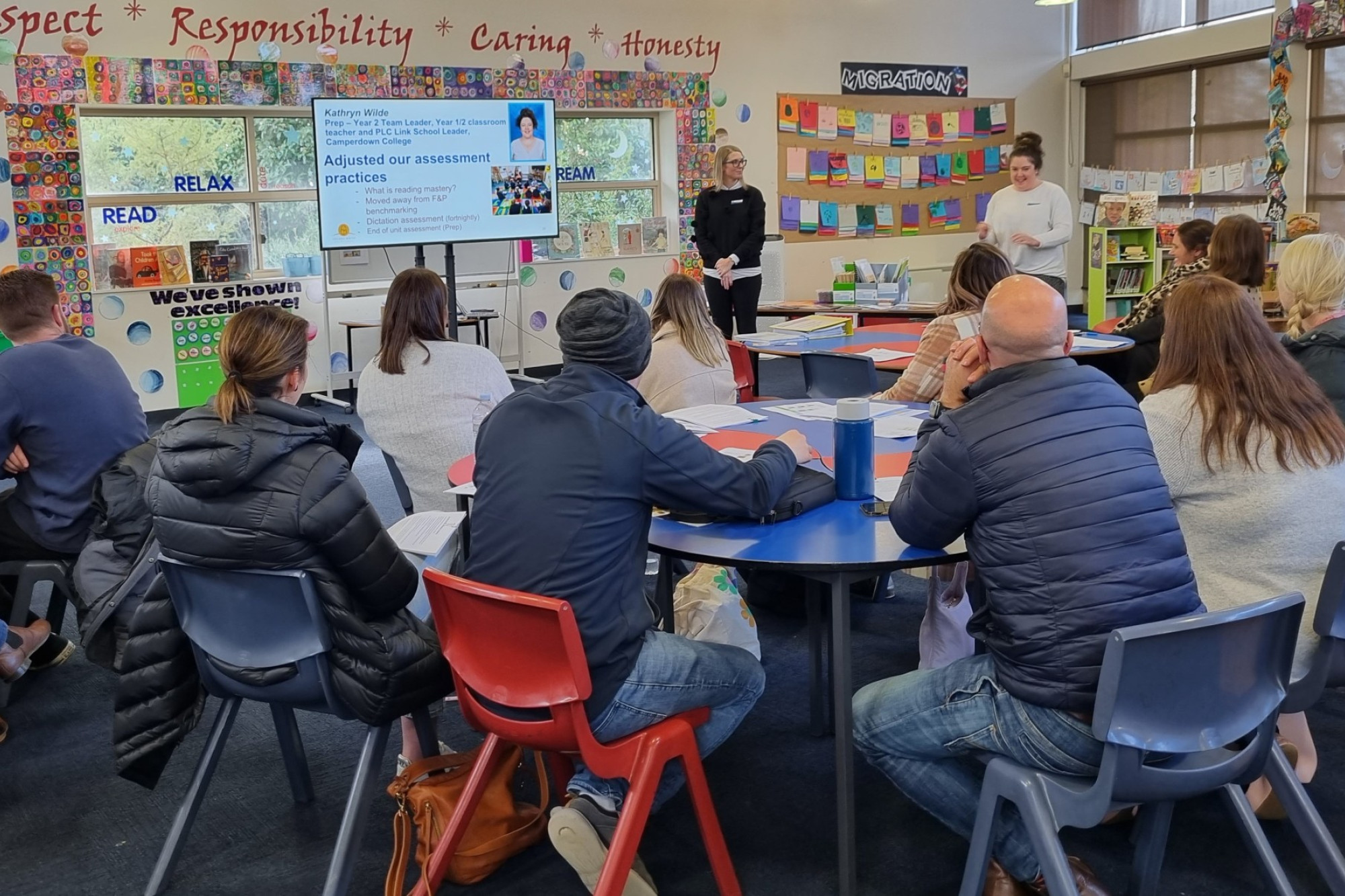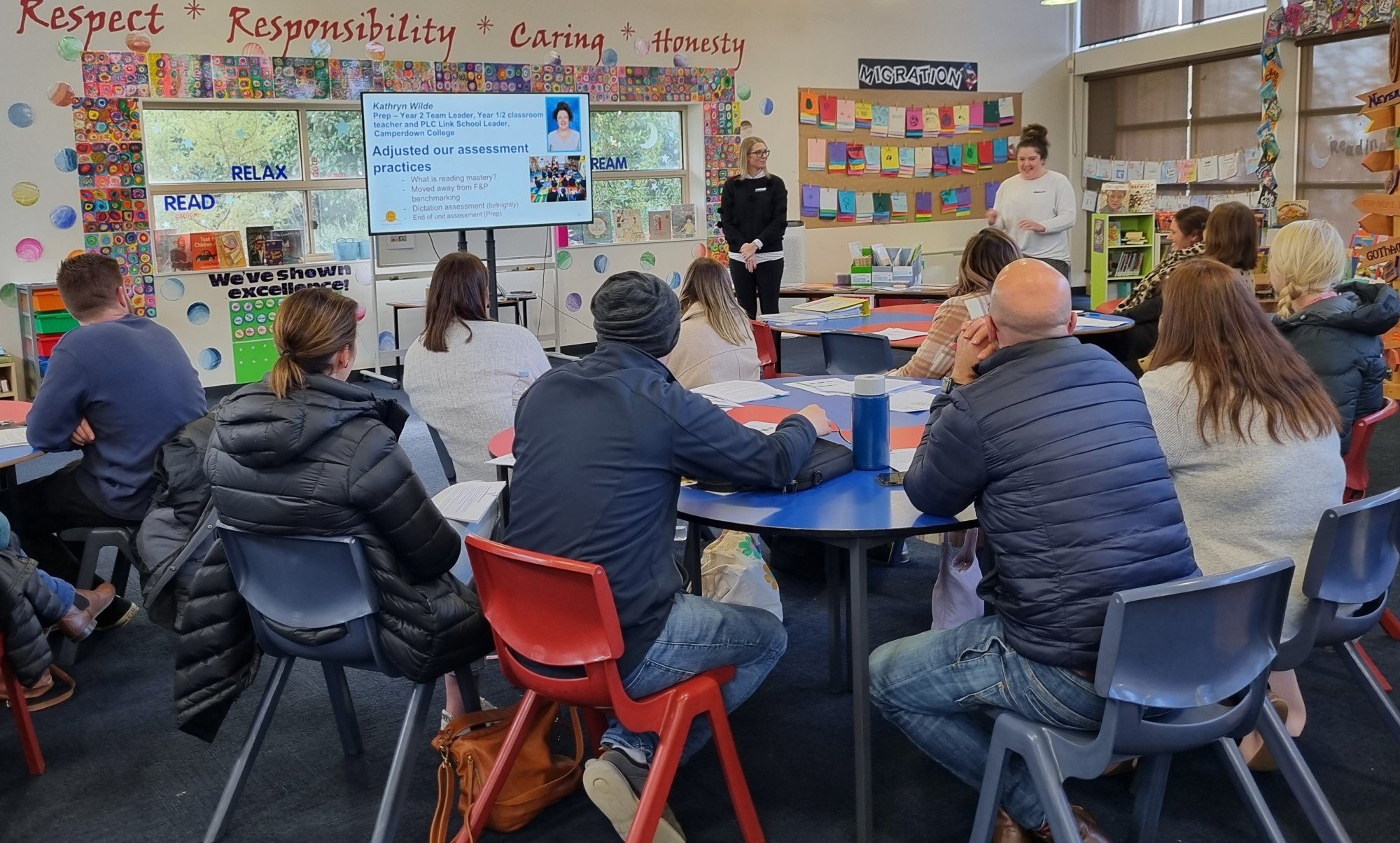General News
16 June, 2022
A new way of teaching explored
A PASSION for teaching phonics and increasing literacy skills has led to considerable change in the way students and teachers go about their day at Camperdown College.

A PASSION for teaching phonics and increasing literacy skills has led to considerable change in the way students and teachers go about their day at Camperdown College.
Systematic and synthetic phonics, an evidence-based, structured approach to teaching children to successfully read, write and spell, was first implemented in Prep in 2017 by two teachers at the college.
As one of just two accredited trainer schools in Australia, Camperdown College willingly opened its doors to other schools from across the state last week and invited classroom observation sessions of this systematic, synthetic approach at work and to share their experience of implementation.
Principals, teachers and education support staff from across the region were welcomed to observe classroom teaching, activities and see first-hand what the Sounds Write program looked like in Prep to grade 6 classrooms, fully embedded into daily routine.
Over the two days, more than 45 education staff from both government and independent primary schools travelled from as far as Warrnambool, Moriac, Castertonand Timboon.
While acknowledging the dedication, planning and restructuring that has taken place since 2017, school assistant principal Jacinta Tolland said she believes it has been the five year approach to implementation which has led to the Sounds Write success.
“In 2017 we started with two teachers implementing the Sounds Write program at Prep and every year since we have trained staff and implemented the phonics approach to the following year level,” she said.
“We have now reached the point in our journey where every staff member and year level is fully immersed in the SoundsWrite program.
“Implementing such a comprehensive phonics approach was more of a marathon than a sprint.
“It took time to gather the skills, resources, confidence and perfection in the way we delivered the program.
“We set some strong non-negotiable boundaries which have ensured we have stayed on course.”
School early years leader, Kathryn Edwards who was also involved in the implementation in 2017, said it had been well worth the work.
“Data shows that students who have had this approach as part of their daily program since Prep are proficient decoders (segmenting and blending sounds) with a large percentage of students with skills at or above the expected norm standard for their age,” she said.
“The school’s year three NAPLAN results last year showed a reflection of the approach’s success with 100 per cent of students in the top and middle bands of performance for writing and 93 per cent of students in reading and spelling.
“Teachers have observed the confidence and ability of their students to truly read words improve significantly over the past five years.
“Lifelong learning skills are being instilled in all students supporting mastery of the English language which is the school’sstrong priority.”
